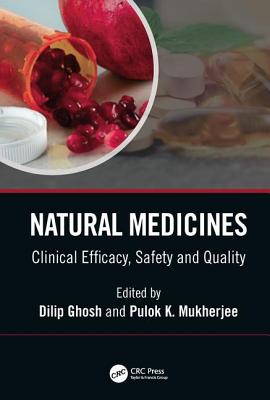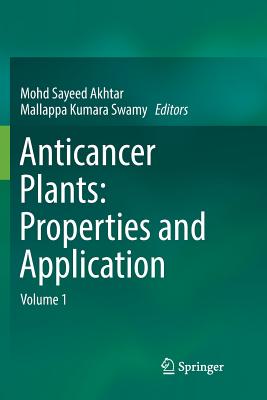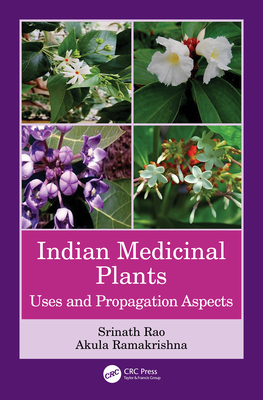Ayurveda in The New Millennium: Emerging Roles and Future Challenges
暫譯: 新千年的阿育吠陀:新興角色與未來挑戰
Kumar, D. Suresh
- 出版商: CRC
- 出版日期: 2020-11-11
- 售價: $6,820
- 貴賓價: 9.5 折 $6,479
- 語言: 英文
- 頁數: 300
- 裝訂: Hardcover - also called cloth, retail trade, or trade
- ISBN: 0367279541
- ISBN-13: 9780367279547
海外代購書籍(需單獨結帳)
相關主題
商品描述
Ayurveda or "the sacred knowledge of longevity" has been practiced in India and many Asian countries since time immemorial. Interest in Ayurveda started growing all over the world in the late 1970s, following the Alma Ata Declaration adopted by the W.H.O. in 1978. Ayurveda in the New Millennium: Emerging Roles and Future Challenges attempts to survey the progress made in this field and to formulate a course of action to take Ayurveda through the new millennium. It also identifies the many stumbling blocks that need to be removed if Ayurveda is to cater to the needs of a wider audience.
Features:
- Newer insights into the history of Ayurveda
- Regulatory aspects of the manufacture of ayurvedic medicines
- Industrial production of traditional ayurvedic medicines
- Quality control
- The scientific rationale of single herb therapy
- Biological effects of ayurvedic formulations
- Optimization of ancient wisdom and newer knowledge
- Conservation of threatened herbs
- Nutraceuticals and cosmeceuticals from Ayurveda
- Critical view of Ayurveda in the West
- Direction for the Ayurveda renaissance
Ayurveda in the New Millennium: Emerging Roles and Future Challenges describes the strength of Ayurveda and how to usher in the Ayurveda renaissance. This book will be of interest to proponents of Ayurveda and all branches of traditional and alternative medicine. Experts from the fields of medicine, pharmacology, new drug discovery and food technology will also find it useful.
商品描述(中文翻譯)
阿育吠陀或稱「長壽的神聖知識」,自古以來在印度及許多亞洲國家中被實踐。自1970年代末期,隨著世界衛生組織於1978年通過的阿爾馬阿塔宣言,全球對阿育吠陀的興趣開始增長。新千年的阿育吠陀:新興角色與未來挑戰試圖調查該領域的進展,並制定行動計劃,以引導阿育吠陀進入新千年。它還指出了許多需要克服的障礙,以便阿育吠陀能夠滿足更廣泛受眾的需求。
特色:
- 對阿育吠陀歷史的新見解
- 阿育吠陀藥物製造的法規方面
- 傳統阿育吠陀藥物的工業生產
- 品質控制
- 單一草藥療法的科學依據
- 阿育吠陀配方的生物效應
- 古老智慧與新知識的優化
- 瀕危草藥的保護
- 來自阿育吠陀的營養保健品與化妝品
- 西方對阿育吠陀的批判性看法
- 阿育吠陀復興的方向
新千年的阿育吠陀:新興角色與未來挑戰描述了阿育吠陀的優勢以及如何引領阿育吠陀的復興。這本書將吸引阿育吠陀的支持者以及所有傳統和替代醫學的分支。來自醫學、藥理學、新藥發現和食品技術領域的專家也會覺得這本書有用。
作者簡介
D. Suresh Kumar was born on September 21, 1949, in the southern Indian province of Kerala, where he received his early education. He obtained a BSc degree in zoology from the University of Kerala (1969) and secured MSc (1972) and PhD degrees (1977) from Banaras Hindu University, Varanasi. His doctoral thesis was on the hormonal control of oxidative metabolism in reptiles. Thereafter, he spent two years as a postdoctoral fellow in the Department of Biological Sciences, University of Aston in Birmingham, England, investigating the pancreatic physiology of the rainbow trout. He returned to India in 1980 and joined the Department of Zoology, University of Calicut, Kerala, as pool officer in the scientist pool of the Council of Scientific and Industrial Research, New Delhi. During his stay there, a chance encounter with some religious persons introduced him to the study of Ayurveda, the traditional medical system of India. He undertook a survey of the state of Ayurveda in the province and published his findings in provincial and national weeklies. In 1986, he joined the International Institute of Ayurveda, Coimbatore, as a research officer in the Department of Physiology. From 1986 to 2003, he carried out research on various aspects of Ayurveda. In collaboration with Dr. Y.S. Prabhakar, presently at CDRI Lucknow, he proposed the first mathematical model for the ayurvedic concept of tridōṣa in the disease state. He also offered a novel definition for the ayurvedic class of medicine arka, based on his study of the Sanskrit text Arkaprakāśa. In 2003, he joined Sami Labs Ltd., Bangalore, as senior scientist in the R&D laboratory. He spent several years in the company working on various aspects of new product development. From 2012 to 2016 he worked as head of R&D laboratory of the Ayurveda consortium, Confederation for Ayurveda Renaissance Keralam Ltd., Koratty, Kerala. In January, 2016 he joined Cymbio Pharma Pvt Ltd, Bangalore as Head (New product development) and since May, 2020 he works as Ayurveda consultant. He is the author of Herbal Bioactives and Food Fortification: Extraction and Formulation published by CRC Press (2016). E. mail: dvenu21@yahoo.com
作者簡介(中文翻譯)
D. Suresh Kumar 於1949年9月21日出生於印度南部的喀拉拉邦,並在那裡接受了早期教育。他在喀拉拉大學獲得了動物學的學士學位(1969年),並在瓦拉納西的班納拉斯印度大學獲得碩士學位(1972年)和博士學位(1977年)。他的博士論文研究了爬行動物的氧化代謝的荷爾蒙控制。此後,他在英國伯明翰的阿斯頓大學生物科學系擔任兩年的博士後研究員,研究虹鱒的胰腺生理學。1980年,他回到印度,加入喀拉拉邦的喀拉拉大學動物學系,擔任新德里的科學與工業研究委員會的科學家池的池官。在那裡的期間,他偶然遇到一些宗教人士,讓他接觸到印度傳統醫學系統——阿育吠陀的研究。他對該省的阿育吠陀狀況進行了調查,並在省級和國家級的周刊上發表了他的研究結果。1986年,他加入了位於科印巴托爾的國際阿育吠陀研究所,擔任生理學部的研究官。從1986年到2003年,他在阿育吠陀的各個方面進行研究。與目前在盧克瑙的CDRI工作的Dr. Y.S. Prabhakar合作,他提出了阿育吠陀概念tridōṣa在疾病狀態下的第一個數學模型。他還根據對梵文文本Arkaprakāśa的研究,為阿育吠陀的藥物類別arka提供了一個新定義。2003年,他加入班加羅爾的Sami Labs Ltd.,擔任研發實驗室的高級科學家。他在公司工作了幾年,專注於新產品開發的各個方面。從2012年到2016年,他擔任阿育吠陀聯盟——喀拉拉邦阿育吠陀復興聯合會的研發實驗室負責人。2016年1月,他加入班加羅爾的Cymbio Pharma Pvt Ltd,擔任新產品開發部門的負責人,自2020年5月以來,他擔任阿育吠陀顧問。他是由CRC Press於2016年出版的Herbal Bioactives and Food Fortification: Extraction and Formulation的作者。電子郵件:dvenu21@yahoo.com











